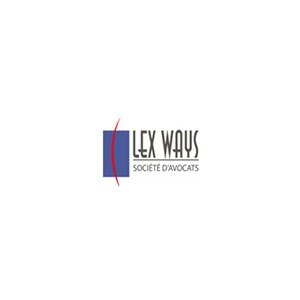Best Real Estate Lawyers in Ivory Coast
Share your needs with us, get contacted by law firms.
Free. Takes 2 min.
Free Guide to Hiring a Real Estate Lawyer
Or refine your search by selecting a city:
List of the best lawyers in Ivory Coast
About Real Estate Law in Ivory Coast
Real Estate in Ivory Coast is governed by a set of laws and regulations that outline the rights and responsibilities of both buyers and sellers. These laws cover various aspects of property ownership, transactions, and disputes. It is important to understand these laws to ensure that your real estate dealings are legal and secure.
Why You May Need a Lawyer
There are several situations where you may need the assistance of a lawyer in the field of Real Estate in Ivory Coast. Some common reasons include drafting or reviewing property contracts, resolving property disputes, handling property transfers, and understanding your rights as a property owner. A lawyer can provide expert advice and guidance to ensure that your real estate transactions are conducted smoothly and legally.
Local Laws Overview
Key aspects of local laws relevant to Real Estate in Ivory Coast include property rights, land ownership, zoning regulations, and property taxes. These laws are designed to protect the rights of property owners and ensure that real estate transactions are conducted fairly and transparently. It is important to be aware of these laws when engaging in any real estate activities in Ivory Coast.
Frequently Asked Questions
1. Can foreigners own property in Ivory Coast?
Yes, foreigners can own property in Ivory Coast, subject to certain restrictions and regulations.
2. What are the steps involved in buying property in Ivory Coast?
The process of buying property in Ivory Coast involves several steps, including finding a property, negotiating the terms of sale, signing a sales agreement, and registering the property.
3. Are there any restrictions on land ownership in Ivory Coast?
Yes, there are restrictions on land ownership in Ivory Coast, particularly when it comes to agricultural land and land near the coast.
4. What are the taxes involved in owning property in Ivory Coast?
Property owners in Ivory Coast are subject to property taxes, which are calculated based on the value of the property.
5. How can I resolve a property dispute in Ivory Coast?
Property disputes in Ivory Coast can be resolved through negotiation, mediation, or through the courts if necessary.
6. What rights do tenants have in Ivory Coast?
Tenants in Ivory Coast are protected by laws that outline their rights and responsibilities, including rent increases and eviction procedures.
7. What is the role of a notary in real estate transactions in Ivory Coast?
A notary plays a crucial role in real estate transactions in Ivory Coast, ensuring that the legal requirements are met and that the transaction is valid.
8. How can I verify the ownership of a property in Ivory Coast?
You can verify the ownership of a property in Ivory Coast by conducting a search at the Land Registry or by consulting a notary.
9. What are the common pitfalls to avoid in real estate transactions in Ivory Coast?
Common pitfalls to avoid in real estate transactions in Ivory Coast include not conducting proper due diligence, overlooking key legal requirements, and not seeking legal advice when needed.
10. How can I protect my property rights in Ivory Coast?
You can protect your property rights in Ivory Coast by ensuring that all legal requirements are met, keeping proper documentation, and seeking legal advice when necessary.
Additional Resources
For more information on Real Estate in Ivory Coast, you can visit the Ministry of Construction, Housing, and Urbanism or consult a local real estate association for guidance and support.
Next Steps
If you require legal advice or assistance in Real Estate in Ivory Coast, it is recommended to seek the services of a qualified real estate lawyer who is familiar with local laws and regulations. They can provide you with the necessary guidance and support to ensure that your real estate transactions are conducted smoothly and legally.
Lawzana helps you find the best lawyers and law firms in Ivory Coast through a curated and pre-screened list of qualified legal professionals. Our platform offers rankings and detailed profiles of attorneys and law firms, allowing you to compare based on practice areas, including Real Estate, experience, and client feedback.
Each profile includes a description of the firm's areas of practice, client reviews, team members and partners, year of establishment, spoken languages, office locations, contact information, social media presence, and any published articles or resources. Most firms on our platform speak English and are experienced in both local and international legal matters.
Get a quote from top-rated law firms in Ivory Coast — quickly, securely, and without unnecessary hassle.
Disclaimer:
The information provided on this page is for general informational purposes only and does not constitute legal advice. While we strive to ensure the accuracy and relevance of the content, legal information may change over time, and interpretations of the law can vary. You should always consult with a qualified legal professional for advice specific to your situation.
We disclaim all liability for actions taken or not taken based on the content of this page. If you believe any information is incorrect or outdated, please contact us, and we will review and update it where appropriate.
Browse real estate law firms by service in Ivory Coast
Ivory Coast Attorneys in related practice areas.
Browse real estate law firms by city in Ivory Coast
Refine your search by selecting a city.











